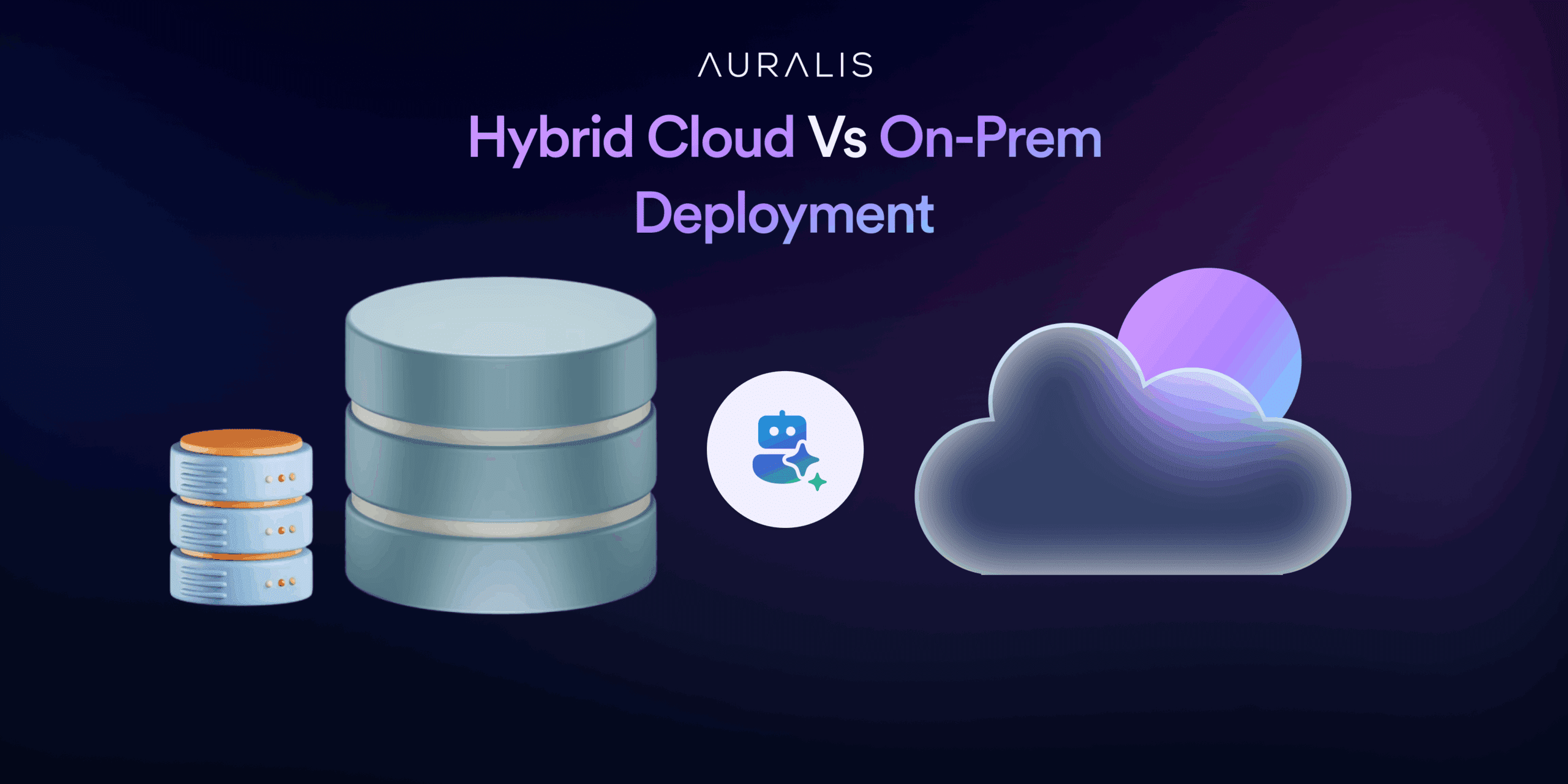Customer journeys are no longer linear.
With so many touchpoints established across the digital landscape, a consumer can engage with a brand differently across platforms before converting. This interaction often includes support requests, making it important for businesses to streamline their operations irrespective of the channel they choose to engage on.
Statistics have found that 73% of companies state that offering multi-channel support is crucial for their business. But manning so many platforms is next to impossible – and that’s where AI integrations come in.
But AI comes with its own challenges. In this post, we will specifically discuss how to secure customer support when using AI for efficiency.
Table of Contents
Recap: What is multi-channel support and why is it important?
Multi-channel support refers to offering customer service in the form of assistance and communication across multiple channels. This typically includes email, phone, live chat, social media, and messaging apps like SMS, WhatsApp, Telegram and others.
- Enhances customer experience by allowing them to choose their preferred mode of communication
- Increases accessibility to seek support at crucial stages in the buying journey across channels
- Brings consistency in customer interactions across channels to improve brand perception and recall
- Improves responsiveness in handling customer queries across channels without losing data
- Boosts brand reach by engaging a wider audience based on their platform preferences
Why is AI integration important for multi-channel customer support?
The digital landscape is growing by the day, making it harder for businesses to keep up. Securing AI integrations in multi-channel customer support can help:

1. Meet evolving customer expectations
Consumers today expect consistent, fast, and personalized customer support across all channels. AI-powered solutions like virtual agents and chatbots provide 24/7 availability, offering instant gratification while maintaining consistency by standardizing responses to common queries.
AI can detect potential issues early by monitoring interactions for signs of dissatisfaction or recurring problems, enabling businesses to proactively address them. It also automates follow-ups with customers post-interaction to ensure their issues have been resolved, further improving satisfaction rates.
2. Enhance efficiency and reduce operational costs
AI can help with intelligent automation for answering FAQs, processing orders, managing appointments, and more. This allows human agents to focus on more complex tasks that require individual attention, improving their response time and overall productivity – which leads to optimized operational costs for the business.
3. Personalize communication at scale
AI can access customer data across channels to build a more cohesive profile to provide personalized responses and recommendations. By analyzing inputs, past behavior, and interactions, AI makes it possible to offer support that is tailored to individual needs and preferences.
4. Improve scalability and flexibility
AI in customer support can enable businesses to scale effortlessly. This could mean managing an increased volume of customer interactions at peak periods or even adding another channel to offer support. The agility that AI brings helps them adapt, expand, and optimize their support capabilities to meet customer expectations.
5. Centralize management and insights
AI integrations in support help businesses to centralize and analyze data from various support channels. This offers a unified view of customer interactions, helping build resources and automation more strategically, and improving the overall quality and reliability of support.
AI also provides detailed performance analytics on support interactions, helping businesses understand what’s working and where improvements are needed. It also enables analysis of customer feedback from multiple channels, identifying trends and areas for enhancement.
What are the risks of AI integrations in multi-channel customer support?
While there are several benefits of using AI in customer support, here are some challenges businesses may face:
1. Data privacy and security risks
- Data Breaches: AI systems handle sensitive data, making them targets for cyberattacks that can lead to unauthorized access and significant damage.
- Non-Compliance: Failure to adhere to data protection regulations like GDPR or CCPA can result in fines and legal issues for the business.
- Vulnerability to Attacks: AI when integrated with multiple platforms, is at a higher risk of attacks like data tampering or DoS if not well-secured.
2. Bias and fairness issues
- Algorithmic Bias: AI trained on biased data can produce unfair responses, risking customer alienation, reputational damage, and potential legal issues.
- Unequal Treatment: Poorly managed AI may favor certain groups, resulting in inconsistent support experiences.
3. Reduced human touch and customer frustration
- Lack of Empathy: AI often struggles to convey empathy or grasp nuanced emotions, potentially causing dissatisfaction in sensitive situations.
- Limited Understanding: AI can misinterpret complex or poorly phrased queries, leading to incorrect responses and customer frustration.
4. Over-reliance on AI and reduced human oversight
- Over-Dependence: Excessive reliance on AI can reduce human oversight, making it harder to address unexpected or complex issues.
- Skill Degradation: With fewer routine tasks for human agents, their skills in managing complex support scenarios can decline, affecting overall service quality.
5. Integration challenges and system incompatibilities
- Technical Integration Issues: Integrating AI with existing systems can be complex and resource-intensive, potentially causing service disruptions.
- Maintenance and Updates: AI support solutions need regular updates and maintenance to stay effective and secure.
PS. Did you know Auralis integrates seamlessly with the best customer support platforms, CRMs, and other solutions? Explore integrations here.
6. High implementation costs
- Initial Investment: Implementing AI in customer support involves high costs for software, hardware, and integration.
- Ongoing Operational Costs: AI systems incur continuous costs for maintenance, training, and updates.
PS. Did you know that using solutions like Auralis can optimize your cost of setting up AI for multi-channel customer support? Explore pricing here.
7. Data quality and dependency
- Dependence on Data Quality: AI relies on high-quality data for effectiveness; poor or outdated data can lead to inaccurate responses.
- Data Silos: AI may underperform if data is isolated across different parts of the organization, causing inconsistent insights.
8. Ethical and transparency concerns
- Lack of Transparency: Deep learning AI models can be “black boxes,” making decision-making processes unclear and potentially eroding customer trust.
- Ethical Implications: AI in customer support raises ethical concerns about decision-making, privacy, and job replacement.
9. Risk of AI system failures
- System Downtime: AI systems can experience failures, disrupting customer service and causing dissatisfaction.
- Errors and Misinformation: AI can provide incorrect information or make poor decisions, impacting customer trust and needing human correction.
In some cases, resistance to change can also be a challenge that businesses face. This can come from both the employees using AI solutions and customers interacting with the business.
How to secure AI integrations across multi-channel support
Here are some ways to navigate the risks and challenges above:
1. Secure data transmission
We recommend implementing end-to-end encryption for all the data transmitted between the AI solution and your customer support channels. This is to ensure your customer data remains secure during transit. Remember to also ensure accessibility by authorized parties only.
2. Implement strong access controls
Limit access to the AI solution based on user roles and responsibilities. Additionally set up multi-factor authentication (MFA) for accessing AI management consoles and dashboards. This will minimize the risk of unauthorized access to sensitive data.
3. Regularly update and patch AI systems
Ensure you have a defined period to audit and update the AI software, framework, and integrations. Use automated tools for patch management to ensure that security updates are applied across channels.
4. Secure each communication channel
Apply security measures specific to each channel. This can include SSL/TLS for web-based chat support, end-to-end encryption for messaging apps, and secure email protocols for email customer support. Also, ensure you monitor each channel for unusual activities and anomalies to prevent security breaches.
5. Data privacy and compliance
Ensure your customer support process collects only the necessary data required for AI to function effectively. When setting up AI integrations, comply with data protection regulations like GDPR, CCPA, or other relevant standards. This includes proper data handling, consent management, and the ability to delete data upon request.
6. Ongoing monitoring and threat detection
Set up real-time monitoring tools to detect and respond to potential security threats across channels quickly. Deploy IDS to monitor network traffic and identify malicious activities that could compromise AI integrations.
7. Implement incident response plans
Develop a comprehensive incident response plan that outlines steps to take in the event of a security breach. Regularly review and update your response plan across channels and platforms to secure AI integrations from new threats.
8. Educate and train employees
Ensure you provide training for employees on the AI solution for customer support. From deployment to use cases, best practices, restrictions, and more, solutions like Auralis AI equip you with an extensive knowledge base to onboard your team.
9. Maintain a strong audit trail
While most AI-powered customer support solutions offer real-time monitoring and analytics, we recommend also maintaining a strong audit trail. This should include detailed logs of use cases, AI interactions, access attempts, and administrative actions. These audit trails can also help meet regulatory compliances.
Conclusion
AI is today a necessity for efficient and consistent customer support. That makes choosing the right solution important.
Look beyond features to ensure the AI integrates well with your existing systems and platforms and can help you build a cohesive customer support strategy.
Want to automate 70% of support tasks? Book a demo to explore Auralis’s AI-powered CX engine today.











